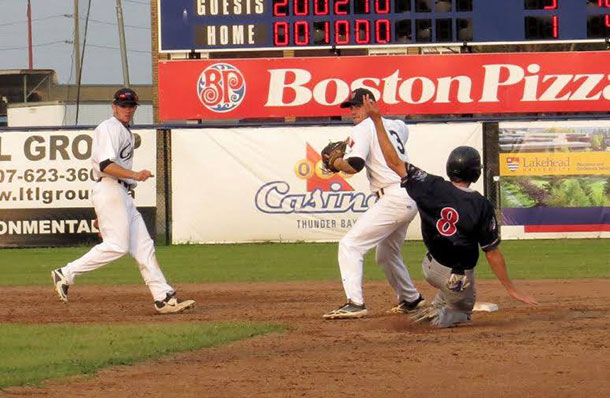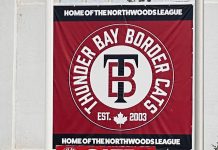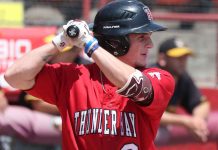Baseball’s new success formula: Get out of the middle class for a while, sell the house, live in a trailer, accumulate credits and then buy a fabulous mansion
By Bruce Dowbiggin
Columnist
CALGARY – SPORTS – We’re told that the sincerest form of flattery is imitation. If it’s the case that teams are imitating the Houston Astros, then it’s no surprise that prominent agents for Major League Baseball players are screaming foul about the phony war going on in the baseball talent pool.
MLB pitchers and catchers report to spring training camps in about 10 days. If you were one of those pitchers and catchers, you might want to know what city you’ll be headed to when you leave Florida or Arizona.
But a whack of those pitchers and catchers – plus their brethren in the free-agent pool – are engaged in a massive game of dare with owners. Despite the heat of hot-stove talk at the end of the MBL season, a number of the most valuable baubles are exactly where they were when the Astros won the World Series last November.
And you can track it all back to the dramatic win by Houston in the Series. The Astros had been the baseball equivalent of Mr. Bean between 2009 and 2015, a stumbling, bumbling collection of players not-yet-ready and never-ready. They lost 590 games (out of 1,134) in those years. They were regularly out of the playoff hunt by May.
But it was all a clever ruse. The Astros owners decided that just missing a wild-card playoff spot each year with an average team was a Sisyphean exercise. If they were ever to win the first Series in the club’s history, they needed to lose a lot (check), accumulate the best young players they could (check), and rise to fight and win another day (check in 2017).
It was a ploy that the Chicago Cubs exploited as well on their way to the 2016 World Series win. Get out of the middle class for a while, sell the house, live in a trailer, accumulate credits and then buy a fabulous mansion. To do that, the Cubs and Astros got themselves out of the annual winter free-agent frenzy, in which teams paid ungodly sums to players who couldn’t possibly make the difference between mediocrity and a title.
The success of the Astros and Cubs apparently isn’t lost on other MLB teams. With a hefty luxury tax for going over the salary max each year and no penalty for going right down to the floorboards, a number of team owners are waiting to see just how low they can drive the price tags or trade options on players such as J.D. Martinez, Josh Donaldson, Manny Machado, Yu Darvish, Jake Arrieta and many more.
There have been a few clubs, such as Milwaukee, active in signing free agents. And some dramatic trades for Giancarlo Stanton (Yankees), Andrew McCutchen (Giants), Evan Longoria (Giants) and Gerrit Cole (Houston).
But Brodie Van Wagenen, a player agent with CAA Sports, thinks it all stinks. “It feels co-ordinated, rightly or wrongly,” Van Wagenen wrote. “Many club presidents and general managers with whom we negotiate are frustrated with the lack of funds to sign the plethora of good players still available, raising further suspicion of institutional influence over the spending. Even the algorithms that have helped determine player salaries in recent years are suggesting dramatically higher values than owners appear willing to spend.”
Now there’s even talk of a boycott of spring training, alternative camps set up by free-agent players to work out and legal challenges in a league that hasn’t had a work stoppage since the disastrous 1994 strike. The prospect of some very significant players still unsigned by midseason is very real. And they’ll want to be ready when the call comes.
MLB has been here before. From 1985 to 1987, owners reached the conclusion that if they didn’t compete for free agents, the price would come down. Unfortunately for them, they colluded on refusing the sign free agents like Andre Dawson, Tim Raines, Ron Guidry, Rich Gedman, Bob Boone and Doyle Alexander. When the evidence was revealed, owners had to cough up $122.5 million for fixing the market in those three years. Commissioner Peter Ueberroth (who concocted the scheme) resigned.
So far, MLB owners have been careful not to record their agreements on driving the player market into the ditch. If they stick to their guns, we could be in for a long game of “After you, Gaston.”
As I’ve written here before – and in my upcoming book Cap In Hand – other major team sports are adopting the same avoidance of paying unless they can win it all. Tanking is now a thing in the National Basketball League, the National Hockey League and (to a lesser extent) the National Football League. How fans will react hinges on how long it takes to assemble a great young team and whether they win after years of pain.
Just so long as those tanking owners remember there’s only one trophy in each sport and 30 to 32 teams that want it.
One sure thing: It’s going to get a lot nastier in the open market for players before a solution is reached in all these leagues.
Columnist Bruce Dowbiggin career includes successful stints in television, radio, and print. A two-time winner of the Gemini Award as Canada’s top television sports broadcaster, he is also the publisher of Not The Public Broadcaster.
© Troy Media
The views, opinions, and positions expressed by all columnists and contributors are the author’s alone. They do not inherently or expressly reflect the views, opinions and/or positions of NetNewsLedger.




